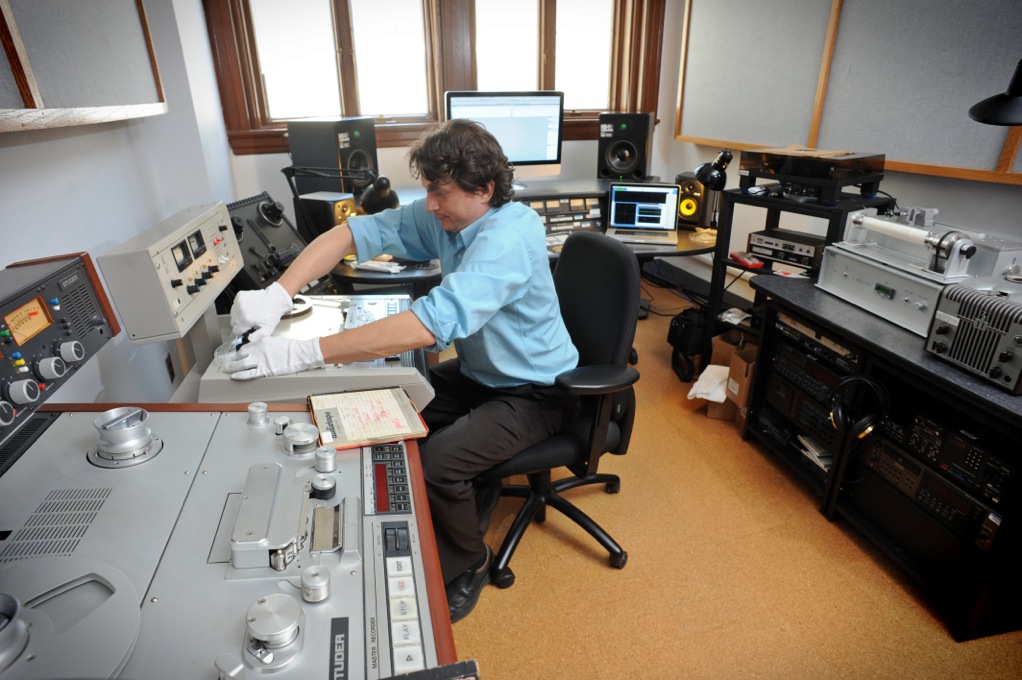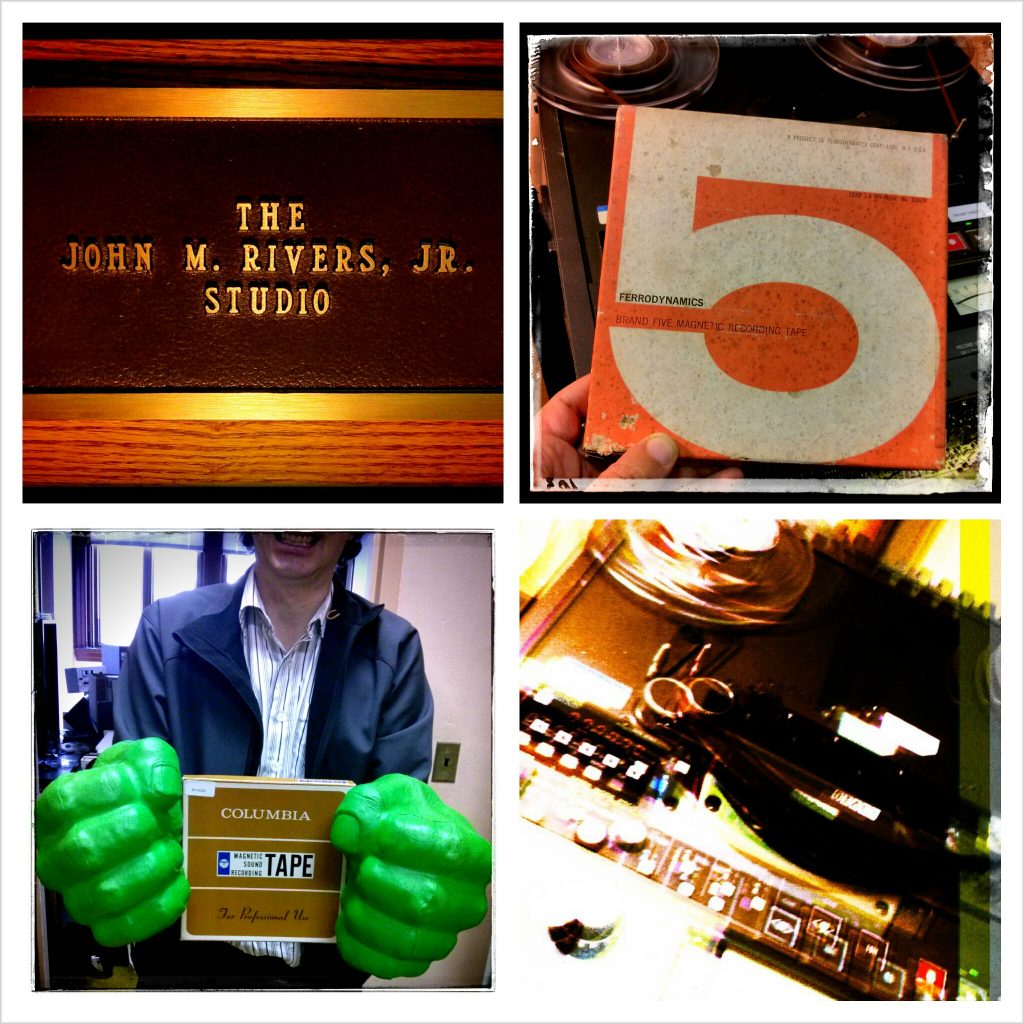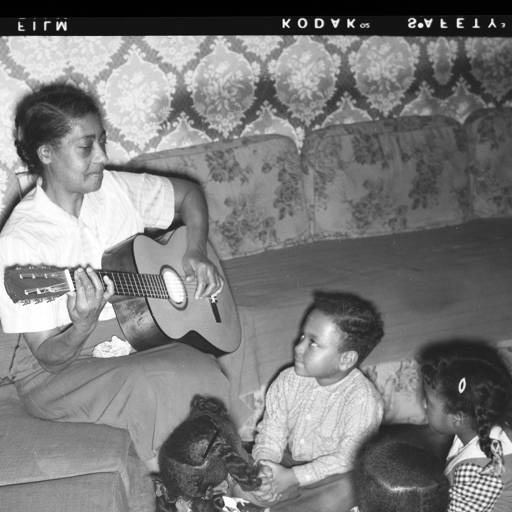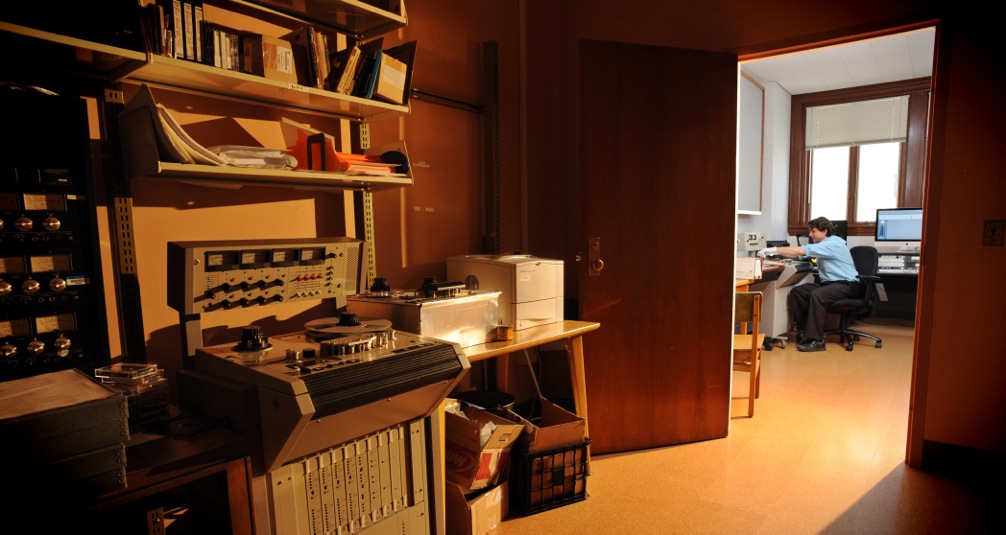 UNESCO, in cooperation with the Co-ordinating Council of Audiovisual Archives Associations (CCAAA) and other partners, has adopted 27 October as the World Day for Audiovisual Heritage to better focus global attention on the significance of AV documents and to draw attention to the need to safeguard them. The theme for this year’s celebration is “Saving Our Heritage for the Next Generation.”
UNESCO, in cooperation with the Co-ordinating Council of Audiovisual Archives Associations (CCAAA) and other partners, has adopted 27 October as the World Day for Audiovisual Heritage to better focus global attention on the significance of AV documents and to draw attention to the need to safeguard them. The theme for this year’s celebration is “Saving Our Heritage for the Next Generation.”
 The Southern Folklife Collection works toward this goal daily in our efforts to preserve the hundreds of thousands of sound recordings, film and video housed in Wilson Library. Through grant-funded digitization projects and through research driven requests, the Southern Folklife Collection has digitized and made available tens of thousands of recordings documenting the vast riches of traditional expressive culture from the American South and around the world. The John M. Rivers, Jr. Studio (pictured above, right, and below) and the Ben Jones Audio and Video Studios constantly echo with the sounds, songs, and stories collected from centuries past through the 21st.
The Southern Folklife Collection works toward this goal daily in our efforts to preserve the hundreds of thousands of sound recordings, film and video housed in Wilson Library. Through grant-funded digitization projects and through research driven requests, the Southern Folklife Collection has digitized and made available tens of thousands of recordings documenting the vast riches of traditional expressive culture from the American South and around the world. The John M. Rivers, Jr. Studio (pictured above, right, and below) and the Ben Jones Audio and Video Studios constantly echo with the sounds, songs, and stories collected from centuries past through the 21st.
From the UNESCO statement:
Audiovisual documents, such as films, radio and television programmes, are our common heritage and contain the primary records of the 20th and 21st centuries. They help to maintain the cultural identity of a people; but countless documentary treasures have disappeared since the invention of image and sound technologies that permit the peoples of the world to better share their experiences, creativity and knowledge.
All of the world’s audiovisual heritage is endangered. Nowhere can it be said to be preserved, but through initiatives such as theWorld Day for Audiovisual Heritage and the Memory of the World Programme, the precious work of preservation professionals is given impetus to manage a range of technical, political, social, financial and other factors that threaten the safeguarding of our heritage.
It was in this context, that the General Conference in 2005 approved the commemoration of a World Day for Audiovisual Heritage as a mechanism to raise general awareness of the need for urgent measures to be taken and to acknowledge the importance of audiovisual documents as an integral part of national identity. (UNESCO)
In honor of the 7th World Day for Audiovisual Heritage, we wanted to highlight some of the recordings recently digitized as part of one of our current projects, From the Piedmont to the Swamplands: Preserving Southern Traditional Music, funded in part by the National Endowment for the Humanities. The multi-year effort will preserve and make accessible online up to 3,019 hours of sound recordings and 4,500 related photographs dating from the 1920s to 1980s, drawn from the Southern Folklife Collection holdings in the William R. Ferris Collection (20367), Mike Seeger Collection (20009), John Edwards Memorial Foundation Records (20001), and the Goldband Recording Corporation Collection (20245).
 Regular readers of Field Trip South will not be surprised to see the Mike Seeger Collection featured here. Many of Seeger’s photographs are currently digitized and available for viewing online: iconic images of America’s musical treasures like Ralph and Carter Stanley, the Carter Sisters, Lesley Riddle, Dock Boggs, and of course, the beloved NC Piedmont picker and singer, Elizabeth Cotten.
Regular readers of Field Trip South will not be surprised to see the Mike Seeger Collection featured here. Many of Seeger’s photographs are currently digitized and available for viewing online: iconic images of America’s musical treasures like Ralph and Carter Stanley, the Carter Sisters, Lesley Riddle, Dock Boggs, and of course, the beloved NC Piedmont picker and singer, Elizabeth Cotten.
The Southern Folklife Collection has preserved hundreds of hours of Seeger’s field recordings and his own master tapes. Every tape is a treat, but occasionally we come upon an especially outstanding track like this version of “Well May the World Go” featuring Mike performing with his brother, the legendary folksinger Pete, on 29 January 1973. They tore through three versions of the tune that day. Have a listen to the third take of that piece here, from FT14925 in the Mike Seeger Collection:FT14295_Mike_Seeger_&_Pete_Seeger
Another recent standout track comes from The New Tranquility String Band (FT14198.) This outtake of “Boatman” was recorded during sessions for the Berkley Farms: Oldtime and Country Style Music of Berkley LP originally released for Smithsonian Folkways in 1972. This version version has the jaw harp higher in the mix, giving it a striking old-time feel that we like. FT14198_Mike_Seeger_Berkley
 The Piedmont to the Swamplands grant also allowed us to digitize the majority of audio recordings collected by folklorist and UNC professor William R. Ferris. With thousands of audio recordings, photographs, and feet of film, the William R. Ferris Collection is an invaluable resource documenting the people and culture of the American South, an archival treasure trove reflecting the ineffable “sense of place” that makes the South such a compelling–and haunting–place. Many of Ferris’s photographs are available online. This performance by a young child, Don Singleton recorded on FT 9918, made our jaws drop.
The Piedmont to the Swamplands grant also allowed us to digitize the majority of audio recordings collected by folklorist and UNC professor William R. Ferris. With thousands of audio recordings, photographs, and feet of film, the William R. Ferris Collection is an invaluable resource documenting the people and culture of the American South, an archival treasure trove reflecting the ineffable “sense of place” that makes the South such a compelling–and haunting–place. Many of Ferris’s photographs are available online. This performance by a young child, Don Singleton recorded on FT 9918, made our jaws drop.
FT9918_BFC_FANNIE BELL CHILDRENS CONCERT
This next tape was recorded during the process of filming a documentary film about the remarkable Fannie Bell Chapman. The complete film can be viewed in full on Folkstreams.net., Fannie Bell Chapman: Gospel Singer. The following version of “Now Sister Go Where I Send Thee” is from FT9974, the first of six tapes recording Chapman’s music recorded in August 1975. FT9974_BFC_Fannie Bell Chapman_Now Sister Go Where I Send Thee
 Ferris documented the secular as well as the sacred and his recordings of Mississippi blues artists are equally vital documents. The following track is from one of the first recordings of the bluesman “Big Jack” Johnson. From FT11151, this is Johnson performing on guitar with harmonica player Wash Herron. FT11151_BFC_Wash Herron_Big Jack_Johnson
Ferris documented the secular as well as the sacred and his recordings of Mississippi blues artists are equally vital documents. The following track is from one of the first recordings of the bluesman “Big Jack” Johnson. From FT11151, this is Johnson performing on guitar with harmonica player Wash Herron. FT11151_BFC_Wash Herron_Big Jack_Johnson
These clips offer but a glimpse into the Southern Folklife Collection’s preservation efforts. The public is encouraged to explore our finding aids for detailed inventories and description of archival collections and the UNC Libraries online catalog for materials of interest and request that they be preserved and made available for research. Feel free to contact the SFC with any comments or questions at wilsonlibrary@unc.edu. We also hope you will enjoy some music this Sunday, October 27, World Day for Audiovisual Heritage, and think about institutions like the Southern Folklife Collection, the Library of Congress, and countless other archives and institutions that are working to preserve our aural and visual history. 

2 thoughts on “"Saving Our Heritage for the Next Generation": 7th World Day for Audiovisual Heritage”
Comments are closed.